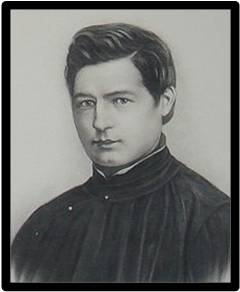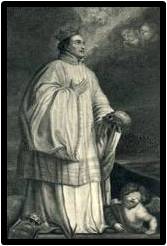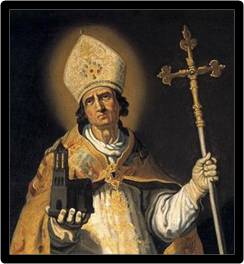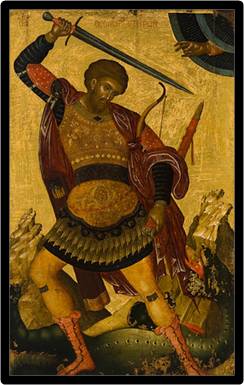NOVEMBER 6 - ST. THEOPHANE VENARD

Jean-Theophane Venard was born at Saint-Loup in France. He was brought up in a pious family. One older brother was a priest and another was the bishop of Poitiers in France. As soon as he was old enough, Theophane went to study for the priesthood. Then he entered a college for missionaries in Paris, France.
Even as a youngster this holy French priest dreamed of being a martyr. His family, whom he dearly loved, was greatly saddened to think that after he became a priest, he would leave them. Travel was not easy those days and Theophane realized that the long ocean journey to the Orient would most probably separate him from his family for the rest of his life.
“My darling sister,” he wrote in a letter, “how I cried when I read your letter. Yes, I well knew the sorrow I was going to bring on my family. I think there will be a special sorrow for you, my dear little sister. But don’t you think it cost me bloody tears, too?
By taking such a step, I knew that I would give all of you great pain. Whoever loved his home more than I do? All my happiness on this earth was centered there. But God, who has united us all in bonds of most tender affection, wanted to draw me from it.”
After he became a priest, Theophane left for Hong Kong. He studied languages for over a year there and then he went on to Tongking. Two problems troubled this eager missionary: his poor health and the terrible persecution of Christians by the ruler Minh-Menh.
But he struggled bravely on. Often he wrote to tell his beloved sister in France all his adventures and narrow escapes from his persecutors. At last, after bravely serving the many Christians in Tongking, a parishioner betrayed him and Theophane was captured and chained in a cage for two months.
His gentle ways won even his jailers. He managed to write a letter home in which he said: “All those who surround me are civil and respectful. A good many of them love me. From the great mandarin down to the humblest private soldier, everyone regrets that the laws of the country condemn one to death. I have not been put to the torture like my brethren.”
But their kindness could not save his life and his head was chopped off. After he was beheaded, crowds rushed to soak handkerchiefs in his blood. Father Venard was martyred on February 2, 1861. He is also one of the martyrs of Vietnam celebrated on November 24.



